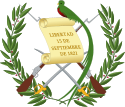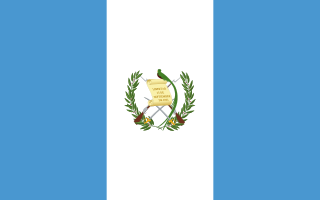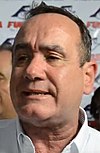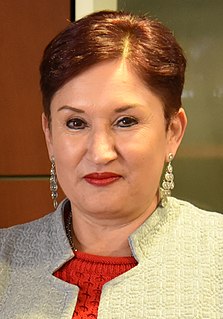
The first round of the Chilean presidential election of 2009–2010 was held on Sunday December 13, 2009. Based on the two-round system, since none of the candidates secured the absolute majority needed to take the presidency outright, a run-off between the two most-voted candidates —center-right Sebastián Piñera and center-left Eduardo Frei Ruiz-Tagle— was held on Sunday, January 17, 2010. Piñera, who won the runoff with about 51.6% of the vote, succeeded Michelle Bachelet on March 11, 2010. Parliamentary elections took place on the same day.

The 2000 Spanish general election was held on Sunday, 12 March 2000, to elect the 7th Cortes Generales of the Kingdom of Spain. All 350 seats in the Congress of Deputies were up for election, as well as 208 of 259 seats in the Senate.
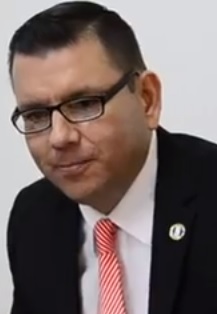
Manuel Antonio Baldizón Méndez is a Guatemalan politician, lawyer, and hotel entrepreneur. He was the leader of the "Libertad Democrática Renovada" (LIDER) Renewed Democratic Liberty party and was a candidate in the 2015 presidential election placing third and losing to Jimmy Morales. He was also a candidate in the 2011 presidential election, placing second and losing to Otto Pérez Molina in a run-off vote. On January 20, 2018, he was captured in the United States, when he was accused of accepting bribes from Odebrecht.

General elections were held in Chile on 17 November 2013, including presidential, parliamentary and regional elections. Voters went to the polls to elect:

The Bolivian general election, 2014 was Bolivia's second to take place under the country's 2009 constitution, and the first supervised by the Plurinational Electoral Organ, a newly created fourth branch of government. Incumbent President Evo Morales was re-elected for a third term.

The Chilean presidential primaries of 2013 were held in Chile on Sunday 30 June 2013. It was the first such election to be run by the government under a new primary law published in December 2012.

Presidential elections were held in Colombia on May 25, 2014. Since no candidate received 50% of the vote in the first round, a run-off between the two candidates with the most votes took place three weeks later on June 15, 2014. According to the official figures released by the National Registry office, as of May 22, 2014 32,975,158 Colombians were registered and entitled to vote in the 2014 presidential election, including 545,976 Colombians resident abroad. Incumbent president Juan Manuel Santos was allowed to run for a second consecutive term. In the first round, Santos and Óscar Iván Zuluaga of the Democratic Center were the two highest-polling candidates and were the contestants in the June 15 run-off. In the second round, Santos was re-elected president, gaining 50.95% of the vote compared with 45.00% for Zuluaga.
The Independent Regionalist Party was a centrist political party in Chile. The party was regionalist ideologically but had a nationwide presence. It was intended to be an alternative to the dominant coalitions in the Chilean electoral system, the New Majority and the Alliance.
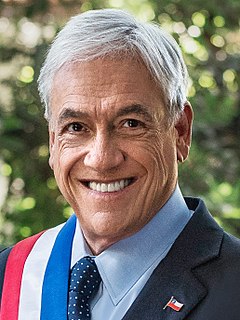
General elections in Chile were held on Sunday November 19, 2017, including presidential, parliamentary and regional elections.
Luis Armando Rabbé Tejada is a Guatemalan politician and media entrepreneur. He was President of the Congress of Guatemala between 14 January 2015 and 14 January 2016. Rabbé was elected to the Congress of Guatemala in the 2011 elections for the National List under the banner of National Change Union. Three months after being installed he became an independent member. In the 2015 general election Rabbé ran once more for the National List, this time as the number two of the Renewed Democratic Liberty (LIDER).

The 2019 Madrilenian regional election will be held on Sunday, 26 May 2019, to elect the 11th Assembly of the Community of Madrid. All 132 seats in the Assembly will be up for election. The election will be held simultaneously with regional elections in eleven other autonomous communities and local elections all throughout Spain, as well as the 2019 European Parliament election.
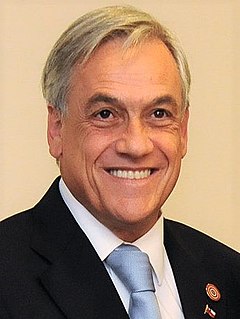
The Chilean presidential primaries of 2017 were held in Chile on Sunday 2 July 2017. It was the first election in the country's history in which Chileans were permitted to vote from abroad.
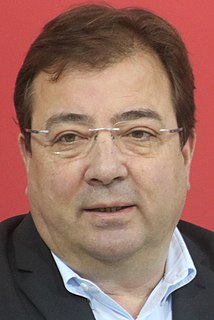
The 2019 Extremaduran regional election will be held on Sunday, 26 May 2019, to elect the 10th Assembly of the Autonomous Community of Extremadura. All 65 seats in the Assembly will be up for election. The election will be held simultaneously with regional elections in eleven other autonomous communities and local elections all throughout Spain, as well as the 2019 European Parliament election.
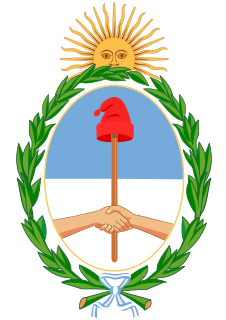
General elections will be held in Argentina on 27 October 2019, to elect the president of Argentina, members of the national congress and the governors of most provinces. Mauricio Macri is the sitting president, and will run for re-election.
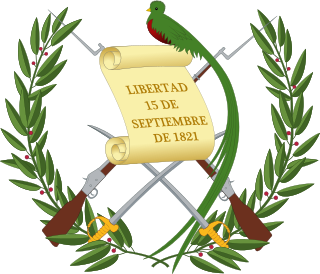
The Secretariat of Social Work of the Wife of the President of the Republic of Guatemala is the organisation in charge of promoting and implementing social programs that benefit children, families and the community in general. SOSEP works in coordination with the First Lady of the Nation, and the current first lady is Patricia Marroquin, also follows the guidelines she has drawn. It was created on July 14, 1994, during the government of President Jorge Serrano Elías, through government Article 893-91.

Movimiento Semilla is a political party in Guatemala.

Hope for Change is a Venezuelan political party registered by the Consejo Nacional Electoral (CNE) with the shortened name El Cambio. In the 2018 presidential election, Venezuelan pastor and party leader Javier Bertucci received the necessary number of votes required by the CNE to convert the informal group of voters registered under Esperanza por El Cambio into an official political party. Working alongside Bertucci is Alfonso Campos, the party's Secretary-General, its national coordinator Jeickson Portillo, and its Undersecretary Luis Adames.

Liberal Progressive Party is a liberal political party of Costa Rica.

Jonathan Kiril Thomas Menkos Zeissig is a Guatemalan economist, politician, writer, academic and analyst. He is President of the Central American Institute of Fiscal Studies (ICEFI) since September 2012.
